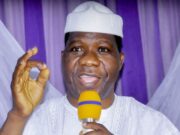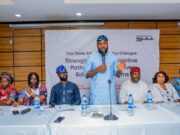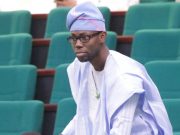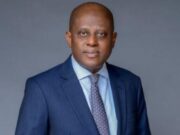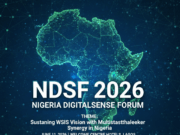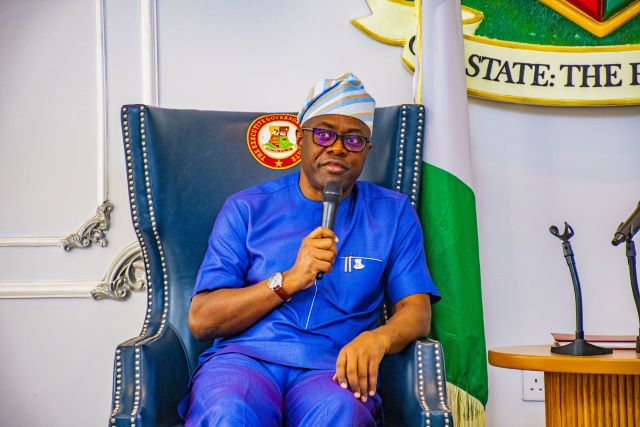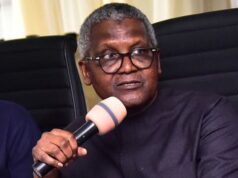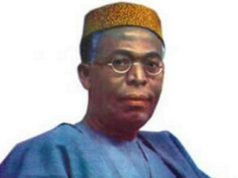Engineer Seyi Makinde, the governor of Oyo State has announced plans for a comprehensive overhaul of the state’s education infrastructure in 2025, emphasising the government’s ongoing efforts to allocate resources effectively for the sector.
Speaking during a media chat on Saturday, aired by the Broadcasting Corporation of Oyo State (BCOS) and other radio stations across the state, the governor reaffirmed his administration’s commitment to transforming education.
While acknowledging progress, he stressed the need to intensify efforts to enhance the critical sector.
Governor Makinde also addressed the tragic loss of 35 children in a stampede in Ibadan on Tuesday, describing the incident as a monumental tragedy.
He called for a minute of silence to honor the victims and reflected on the avoidable nature of the tragedy, along with the Bodija explosion of January 2024, which he said could have been prevented with proper actions.
On allegations that suspects arrested in connection with the Bodija explosion had been freed, the governor clarified that their case remains before the appropriate authorities and assured that the legal process is ongoing, even if slow.
Highlighting his administration’s prioritization of education, Makinde noted that Oyo state consistently exceeds UNESCO’s recommended benchmark for budgetary allocation to education.
He reiterated that despite substantial investments, much more needs to be done, recalling his earlier statement that nearly N60 billion would be required to fully address the sector’s needs.
He said: “We are trying to rearrange our resources to do more for the education sector. It is not for fun that since I came in, we have exceeded the UNESCO recommended figure.
“For tertiary institution, I can say we are doing well and I am satisfied.”
Makinde also reiterated his administration’s commitment to economic expansion, emphasising the need to take decisive actions to break the cycle of poverty, even when such decisions may initially seem harsh to residents.
He assured residents that his government remains focused on initiatives that serve their best interests while addressing longstanding economic challenges.
Makinde highlighted steps taken by his administration to overcome limitations faced by previous governments, including the development of housing estates and the planned corridor on the Senator Rashidi Ladoja Circular Road.
He explained that these initiatives are designed to stimulate the state’s economy and deliver long-term benefits to the people.
The governor urged residents to trust in the administration’s vision, noting that breaking poverty cycles requires bold and sometimes unpopular decisions aimed at ensuring sustainable growth for Oyo state.
“Now, we have too many mouths to feed. How do we break out of the cycle of poverty? I want the people to know that this is their government, and we will continue to do things in the best interest of the people. But people should know that when you have the opportunity to make a lasting impact, you must strike.
“The vision of our founding fathers is not that of poverty. And those who have tried to develop the state had limitations, which we are trying to move out of. We need to produce more and expand our economy and provide opportunities for a whole lot of people irrespective of their political leanings and religions.
“Look at the issue of the Circular Road and some of the places we are opening up for development and some people describing me as a land grabber. I am not a land grabber. I am a firm believer in the saying that it is only an idiot that will continue to do something the same way and expect a different result. I believe that our leaders in the past tried their best.
“It is even the land grabbers that are calling me a land grabber. Some people are being investigated right now.
“The concept of the Circular Road, people may not understand it. They thought it would be like Iwo Road to Beere. No. It will be the very first motorway in Nigeria.
“The 32km stretch from Tech U to Badeku only has two exit points. How we want to develop the place requires that there must be a corridor.”
The governor equally noted that his government has been able to ensure a steady development of the state over the last five years.
He stated that the state’s budget performance has improved drastically over the years, saying: “We realigned the budget immediately we came in 2019. With that we were able to achieve about 48 per cent budget performance.
“Our first full budget was in 2020 before COVID-19 hit the world and, at the end of the year, we still did well to achieve about 60 per cent.
“Right now, we are well over 70 per cent. That is why, for us, you will notice that we have had stability in terms of how projects are executed and the people’s liveability in the state.”
Governor Makinde also used the occasion of the media chat to clarify his position on the controversial Tax Reform Bill by the Federal Government, noting that he was not opposed to the tax reforms, but that the Federal Government needed to engage with a wider array of stakeholders to achieve a meaningful reform.
The governor, who was part of those who briefed the media on the position of the National Economic Council on the bill, following which he was criticised by a section of the public for opposing the tax reform bill, said Nigerians should learn to focus on the message rather than the messenger.
“At the level of the National Economic Council, we asked the Chairman of the Presidential Task Force a question on the whereabouts of the bill and he said that it was already at the National Assembly. I said if that was the case, why are you just coming here for us to debate and give you the approval as prayed. It amounted to putting the cart before the horse.
“It was an agreement reached unanimously at the NEC meeting; withdraw this bill from the National Assembly, let us have a wider consultation. If people have reservations here and there, it is something that is national and you can seek alignment. And when you align, it may be in the original form, or you may have to tweak it to accommodate whatever the stakeholders are going to say.
“I was asked to be part of the people that would brief the press, and my bit was to explain our decision on why the bill should be withdrawn so that consultation could happen with stakeholders, but some people just focused on the messenger as opposed to focusing on the message.”
Credit: thenationonlineng.net








